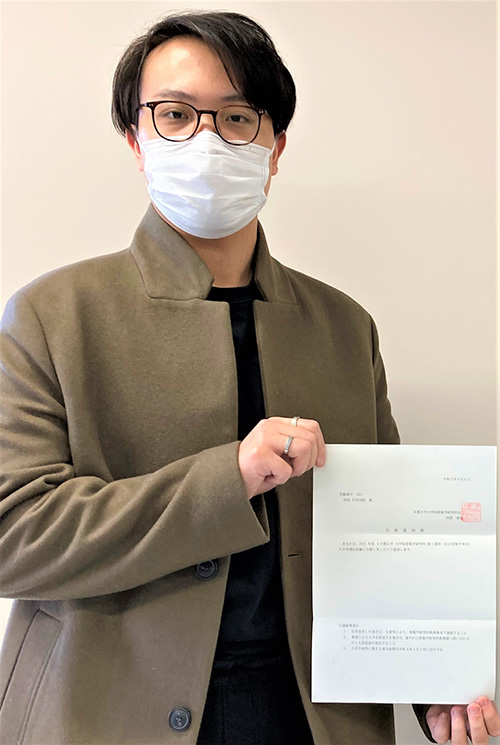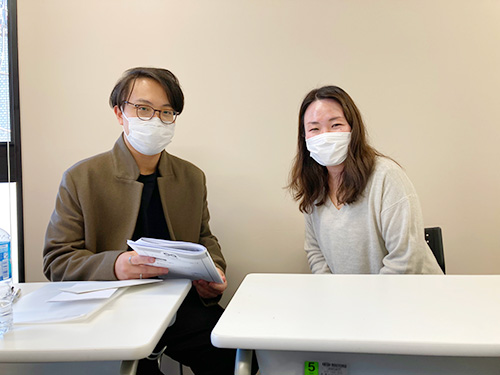Student Interview with Wang Tianchen
- Home
- School Life
- Student Interview
- Student Interview with Wang Tianchen
Wang Tianchen
From China
Takadanobaba Campus / Advanced III-6
Accepted by Department of Social Informatics, Graduate School of Informatics, Kyoto University
- Why did you decide to study in Japan?
- I was attracted by the fact that graduate schools in Japan select students based on their performance in entrance exams, so there is a possibility of being admitted if you continue to work hard even after graduating from university. I have always been a fan of Japanese culture, and my love for anime was another reason for studying in Japan. Also, I personally think that Asian food is better than Western food.
- Why did you choose ISI?
- I thought it was good that there were students of various nationalities.
- What do you think was the best thing of enrolling in ISI and do you have any memorable lessons or memories of your teachers?
- The good thing about enrolling at ISI was that Ms. Yamaguchi became my homeroom teacher. She helped me practice many times for my interview for graduate school.
- What is the most memorable event in your school life?
- When we had a conversation test in class for the speech contest last year, I was impressed by the comments of my homeroom teacher, Ms. Hayashi, who said, "Mr. Wang's pronunciation is beautiful" and "He speaks with words that are easy to understand". This gave me the opportunity to speak Japanese with more confidence than ever before.
- What did you find useful in ISI's guidance and support for your exam?
- In the first year of classes, we had time to look at the application guidelines for graduate schools and check the materials needed for application. I was able to understand what I needed to apply early on, so I was able to prepare for the application on my own.
- Why did you choose the school you were applying to? What made you choose it?
- When I was researching human-robot interaction, I became interested in the research of a professor at Kyoto University. I admired the free academic culture of Kyoto University and decided to take the entrance exam. After entering, I plan to do research on natural language processing instead of human-robot interaction.
- Looking back on your exams, what were the hardest and best parts?
- Students who are aiming to study in the same field of specialization and I solved the past questions of graduate schools together and checked each other's answers. I myself have taken entrance exams for a total of six schools since last year, but I have had some unsuccessful experiences. In the end, I am glad that I was able to pass the graduate school of Kyoto University, which I had always wanted to attend.
- What are your goals and dreams for the future?
- I would like to contribute to society through my research in natural language processing. I would like to find a job in Japan and live in Japan as it is.
- What would you tell to those who want to study in ISI?
- It is important to have a clear idea of why you are coming to Japan to study.
Along with the acceptance letter from the graduate school (congratulations!)

A shot with homeroom teacher, Ms. Yamaguchi


